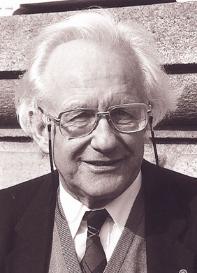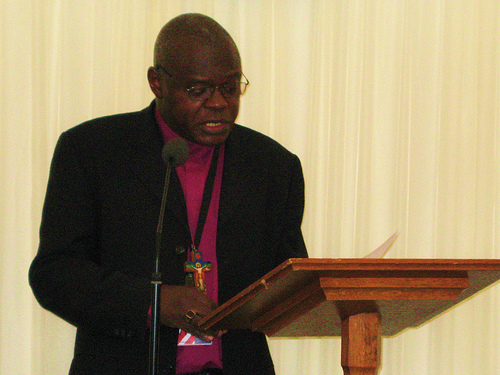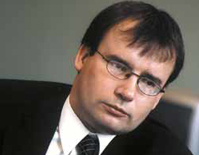
Welcome to the ezine produced by SGI Buddhists that prompts the positive, kindles the constructive, highlights the hopeful and leaves you feeling - well, up!

 Widely regarded as a founding father of peace studies, Johan Galtung reflects on fifty years of work - and on the future - in conversation with Jan Oberg
Widely regarded as a founding father of peace studies, Johan Galtung reflects on fifty years of work - and on the future - in conversation with Jan Oberg
 In a world that is opening up at an astonishing speed, schools are recognising the need to equip young people with the skills to contribute to an increasingly global, interdependent society.
In a world that is opening up at an astonishing speed, schools are recognising the need to equip young people with the skills to contribute to an increasingly global, interdependent society.
Yet in a world in which 4 billion people - two thirds of the population - are of faith, can we be sure that young people are equipped to participate as global citizens if they do not understand much about the world's major religions? How can we ensure that a lack of knowledge does not lead to prejudice, antagonism and tension?
 Professor Paul Rogers of Bradford University and Professor Mary Kaldor of the
LSE explore the current status of the
military dimension of Britain's oil security strategy, and look at ways in which the UK can work to avoid future involvement
in oil-related conflict
Professor Paul Rogers of Bradford University and Professor Mary Kaldor of the
LSE explore the current status of the
military dimension of Britain's oil security strategy, and look at ways in which the UK can work to avoid future involvement
in oil-related conflict
Paul Rogers: First question: August 1990, the Iraqis under Saddam Hussain overran Kuwait very quickly. Within about four or five weeks a very large coalition, which you may recall included eventually an Egyptian and a Syrian division, was being established to evict the Iraqis from Kuwait.

In a recent interview on Australian radio, Jake Lynch, former BBC newsman and a leading international proponent of peace journalism, explains the thinking behind this radical approach.
 'I will always be in the shade of
the trees I have planted,' says Nobel Peace Laureate Wangari Maathai, speaking in Stockholm recently in support of Green Cross, Sweden.
'I will always be in the shade of
the trees I have planted,' says Nobel Peace Laureate Wangari Maathai, speaking in Stockholm recently in support of Green Cross, Sweden.
Report by Rachel Aspögård
Most active thinking Stockholmers were aware of the local environmental event that was held on 1 April at the town hall, under the sponsorship of a post-code lottery. Wangari Maathai was involved, along with former UK prime minister Tony Blair, and former US President Bill Clinton.
 Featuring the Archbishop of York, Dr John Sentamu, as keynote speaker and an audience of Parliamentarians, ambassadors and luminaries from the peace field, the event drew attention to the paltry sums spent on conflict prevention around the world compared to military expenditure and called on the G20 to redress the balance
Featuring the Archbishop of York, Dr John Sentamu, as keynote speaker and an audience of Parliamentarians, ambassadors and luminaries from the peace field, the event drew attention to the paltry sums spent on conflict prevention around the world compared to military expenditure and called on the G20 to redress the balance
For every £1 spent on conflict prevention and peacebuilding £1885 is spent on arms and military resources!
Read Dr Sentamu's speech here and an account of the event here.
Picture: imediate
 Picking up the themes outlined by Foreign and Commonwealth Office minister Lord Malloch Brown, Gareth Thomas, minister of state at the Department for International Development, delves into the nitty-gritty of UK government policy on trying to prevent violent conflict in Afghanistan...
Picking up the themes outlined by Foreign and Commonwealth Office minister Lord Malloch Brown, Gareth Thomas, minister of state at the Department for International Development, delves into the nitty-gritty of UK government policy on trying to prevent violent conflict in Afghanistan...
As all of you I’m sure will accept, conflict and poverty are inextricably linked, and unless we continue to seek to put in place effective conflict prevention strategies we’re not going to make the type of progress that we want towards achieving our goals on poverty.

